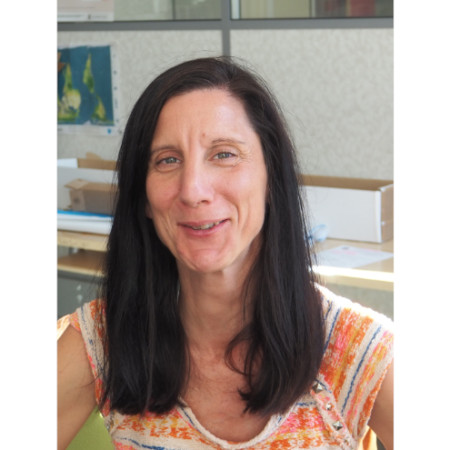“The Volunteer Corps Is a Gift That Helps Us Connect in a Big Way”

ATD Fourth World Volunteer Corps member in Haiti since 2020, Carine Parent describes her work as “a communal learning space on a grand scale”.
Carine Parent loves a detour. Rejecting the direct route, she is always ready to explore untrodden paths. This is what led her to volunteer at an early age.
It started when a drop-in centre for young people with disabilities was opened next to her school.
“There was quite a protest from local residents who didn’t want this. So the management decided to set up a social event, where students could take part in sporting activities with the young people from the centre. This was the first time I had seen anyone making a conscious effort to build connections”
Carine Parent
She chose to train as a biologist, specialising in neuroscience, because that was her passion. But Parent knew she wasn’t cut out for a solitary position in a research laboratory.
Before long, she had left for Africa with the Jesuit Refugee Service, volunteering first in Côte d’Ivoire, then in Burundi. For the next three years, Parent directed educational projects and sociocultural activities with displaced people and refugees in these areas. On her return to France, she became interested in joining ATD Fourth World’s Volunteer Corps:
“I knew the Volunteer Corps was the right path for me” she recalls, “but I had to try other things first.”
A huge responsibility
When Parent worked with the Apprentis d’Auteuil, she became an ATD Fourth World ally. As an ally, she participated in a Street Library and a People’s University. Finally, in 2016, the moment came for her to become a Volunteer Corps member. This opportunity had always appealed to her.
- “It’s the gift from ATD Fourth World to its Volunteer Corps members” she explains. “It is this great commitment to others, this chance to go and meet others and to move on together, building relationships of trust.”
In just the first year her path changed. Her responsibility was to find and support young people living in poverty in Paris. “I didn’t have the kind of close everyday contact that you get when you are part of a particular area. Instead, I found myself part of something far wider,” she explains.
- “Gradually connections began to form with the young people. Listening to them knocked me sideways. Each sentence I heard was a staggering blow; they had such a way of expressing what they were going through. That gave me a tremendous sense of responsibility. Once you hear what they are saying, you know you have a duty to share it.”
Witness to solidarity
Parent then changed positions as she wanted to feel more rooted in an area and she went to live in transitional housing. “I saw incredible solidarity,” she stresses. She particularly remembers her neighbours, a family who had lived there for twelve years.
“Every evening, the mother would go to the bakery on the corner of the street, looking for leftovers. She would then knock on the doors of all the young people who were living alone, and give them bread. She would say, ‘Their parents aren’t here. If I don’t do this, who else will?’”
She also notes the judgments and criticisms that her neighbours suffered on a daily basis: “After a food distribution, one woman told me: ‘Why do people offer us food and then make us feel bad accepting it?’”
Building hope together
About three years later, in 2020, Parent found herself tasked with a new responsibility, this time in Haiti. In this country, more than 7000km away from France, she learned to build a team with one French and seven Haitian Volunteer Corps members.
“It was a great experience. There was respect for what everyone could offer and a deep desire to grow together,” she says. Working as a team is even more of a priority when the country is going through turmoil. “We went through 17 months of gang warfare. For families, it was terrible. Children grew up trapped in their part of town, experiencing nothing from life except men with guns,” But again she witnessed solidarity between those who still came to the ATD centre, despite the risks, to find “a place of peace where they could catch their breath and continue building hope together.”
From Paris to Port-au-Prince, Parent observes that ATD Fourth World “can harness the wisdom of those living in poverty to benefit society as a whole, as well as pave a path towards peace”. This is where she found her own path in a “movement of connection”.
For Carine Parent, the Volunteer Corps is “a communal learning space, […] where you move out of your comfort zone and have time to reach out and understand”.

